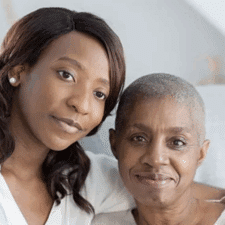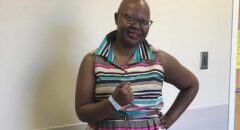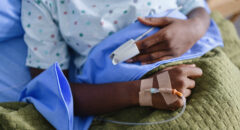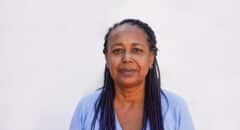
Onjalai Brown knows pain. She’s lived it, breathed it, and nearly didn’t survive it. But today, nearly three years cancer-free, she’s alive—and on a mission. Diagnosed with breast cancer at just 36 in 2021, Brown turned her suffering into a source of strength, becoming a voice for patients, caregivers, and women of color navigating a healthcare system that often doesn’t see or hear them.
A Caregiver Turned Patient
Before her own diagnosis, Brown was a caregiver for her chosen sister, who was diagnosed with triple-negative breast cancer at age 30. It was aggressive. It was fast. And it was mishandled.
“She had no history of cancer nor family history, so this was an anomaly, and it was really aggressive,” Brown tells BlackDoctor.org.
Her sister passed away in early 2020, just before COVID shut down the world. The trauma lingered.
Everything Fell Apart
In 2021, Brown’s life crumbled. She got married in March. Miscarried in May. And was diagnosed with stage 2 breast cancer in September. By the end of the year, her marriage had ended, and she was without a stable home.
Choosing to receive care over 1,000 miles away at City of Hope in California—where her sister had been treated—was a turning point.
“I ended up going to the same consultations… So you can imagine the PTSD associated with that,” Brown adds. “And then really starting to ask questions like, ‘What other options are there?’”
Although returning to the same place was difficult for Brown, the doctors offered a different approach. “I knew I was in the right hands,” she shares.
Brown had a strong family history of cancer, with eight women on her mother’s side and four men diagnosed with breast and prostate cancers and a BRCA2 mutation.
“Even though I knew that, I still chose to undergo the minimally invasive approach to surgery instead of a double mastectomy, which is what they recommended due to my non-medical history and genetic testing. But because of everything happening in my life—I was experiencing homelessness at the time, my marriage was breaking down—I just did not want to add anything else to the complexities around myself,” Brown shares.
RELATED: How I Found Hope After a Devastating Breast Cancer Diagnosis
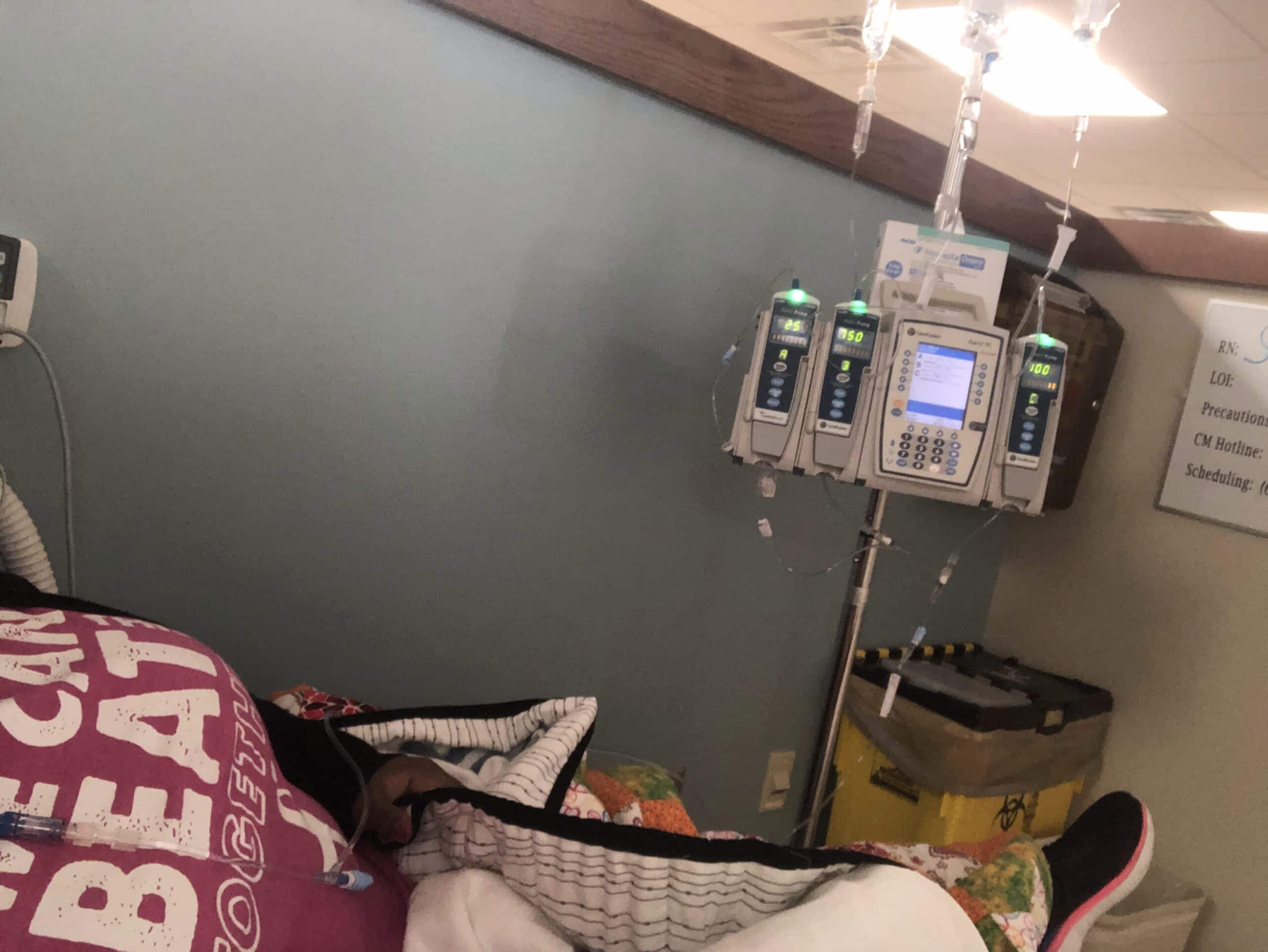
The Breaking Point—and the Shift
The chemo and radiation were brutal. Twenty rounds of chemo, 33 rounds of radiation.
“As a young cancer fighter, I also had to navigate the discussion of fertility preservation and freezing my eggs. And because of the complications and lack of rights with my husband at that time, I decided not to go that route and believed that if it was meant for me to have children, I would one day, whether naturally or through adoption,” Brown says.
As Brown underwent treatment, she was flying back and forth from Texas to Colorado.
“I had people who were generous and allowed me to stay with them for periods of time,” she says.
However, she credits her decision to relocate to Arizona as one of the best decisions of her life.
“I did complete radiation in August 2022 and also completed my master’s degree during that time. The master’s probably helped propel me in keeping focus with everything else that was going on,” she notes.
But in the midst of that, there were a lot of other difficulties. There was emotional trauma.
“There was the loss of my dog, who was my emotional support animal. My divorce was made official. And you can imagine the depression and anxiety that came from not having the same type of care I once had,” Brown shares. “There were a couple of suicide attempts. There were hospital visits. There were injections. It was a very difficult bout of symptoms and reactions to chemo and radiation.”
Brown’s viewpoint eventually changed after an unexpected conversation with a nurse. “A nurse leaned in and whispered, ‘You’re one of my favorites. You light up the room,’” Brown says.
It was enough. Enough to remind her she mattered. Enough to pull her back. That same day, she comforted a crying woman across the treatment center.
“From then on, I showed up not just for me. I looked for the one who needed hope,” Brown adds.
RELATED: Diagnosed at 40: Why I Refused to Let Breast Cancer Define Me

A Mission Reborn
Cancer wasn’t just happening to her—it was happening through her. She saw her treatment not just as a fight for survival, but as an assignment.
“I just try to be really mindful in my own journey. If I’m going to go through this, it’s going to be worth something. It’s not going to be wasted…How can I lead in a way that inspires others to hope, to seek purpose, to know that this is only temporary? It’s either temporary because of healing, or because we’ll be in heaven. I’m a woman of faith, and so I believe that,” she says.
Now, through her ministry, Brown leads with hope, helping others find healing—physically, emotionally, and spiritually.
“…Our main mission is to bring hope and healing to those that we encounter every day. And I’ve got to live my life as a hope dealer—I give it away,” Brown adds.
On Advocacy and Access: What Every Young Woman Should Know
If you take nothing else from Brown’s story, take this: “No one knows your body better than you. You are your own subject matter expert.”
With her family history and firsthand trauma from the healthcare system, Brown is relentless about advocating for young women—especially women of color—to take control of their health.
“You are a consumer. Just like you shop around for the best price or product, you can—and should—shop for the best care,” she explains. “If you’re not being heard, leave. Get a second or third opinion. Your life depends on it.”
She encourages women to do regular self-exams, ask hard questions, and never settle. Healthcare disparities are real. So be bold. Be unapologetic. And if you can’t speak up for yourself, find someone who can.
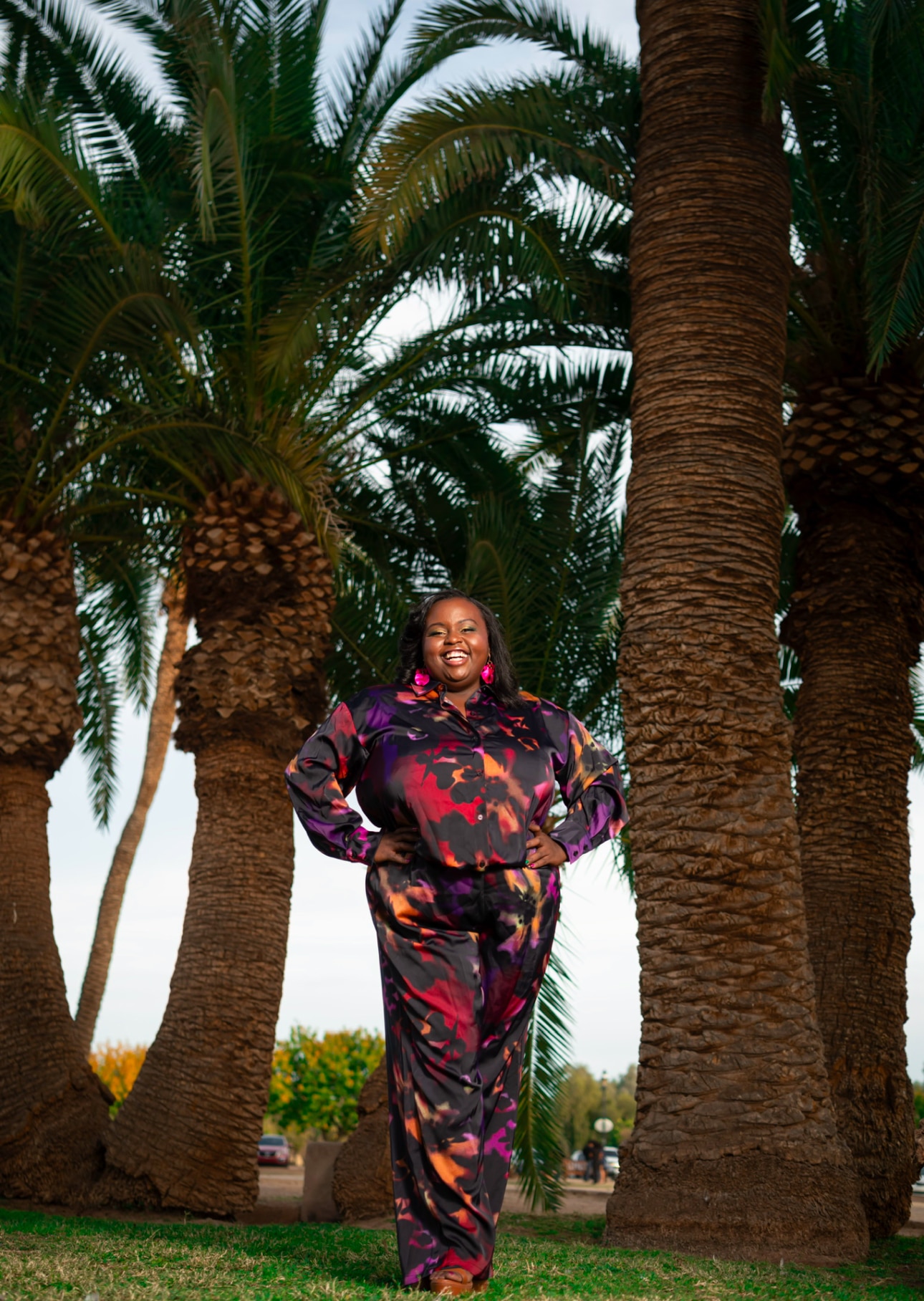
Her Hope for the Future
Today, Brown is in remission, traveling, speaking, and sharing her story and her sister’s legacy wherever she can. “She can’t tell her story anymore, but I can. And I will,” she notes.
Her mission isn’t limited to cancer. Through her ministry, she’s focused on helping people unlock deeper levels of purpose and self-worth, no matter what they’ve been through.
“I want people to know they were created for more. That there is healing, truth, and joy on the other side of pain,” she says.
Her message to anyone currently in the fight?
“Beathe. Just the fact that you’re able to breathe is a miracle. Anything that you navigate that tries to convince you it will consume you, or that you’re not going to make it, or that this is too hard—just remember: You’re very strong,” she concludes. “Seek opportunities to find light, because we already have enough darkness.”

